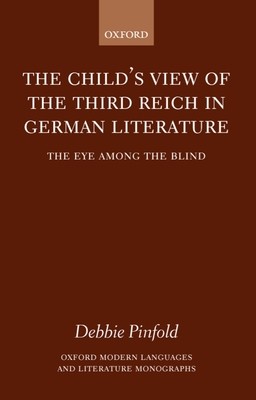
- We will send in 10–14 business days.
- Author: Debbie Pinfold
- Publisher: Clarendon Press
- ISBN-10: 0199245657
- ISBN-13: 9780199245659
- Format: 15.8 x 21.1 x 2.3 cm, hardcover
- Language: English
- SAVE -10% with code: EXTRA
The Child's View of the Third Reich in German Literature (e-book) (used book) | bookbook.eu
Reviews
Description
This book considers how and why German authors have used the child's viewpoint to present the Third Reich. Authors as diverse as Günter Grass, Siegfried Lenz, and Christa Wolf have all used this perspective, and this raises the question as to why it is such a popular means of confronting the Third Reich. This study asks whether it is an evasive strategy, a means of gaining new insights into the era, or a means of discovering a new language. This raises issues central to the post-war German aesthetic.
EXTRA 10 % discount with code: EXTRA
The promotion ends in 18d.03:46:53
The discount code is valid when purchasing from 10 €. Discounts do not stack.
- Author: Debbie Pinfold
- Publisher: Clarendon Press
- ISBN-10: 0199245657
- ISBN-13: 9780199245659
- Format: 15.8 x 21.1 x 2.3 cm, hardcover
- Language: English English
This book considers how and why German authors have used the child's viewpoint to present the Third Reich. Authors as diverse as Günter Grass, Siegfried Lenz, and Christa Wolf have all used this perspective, and this raises the question as to why it is such a popular means of confronting the Third Reich. This study asks whether it is an evasive strategy, a means of gaining new insights into the era, or a means of discovering a new language. This raises issues central to the post-war German aesthetic.


Reviews